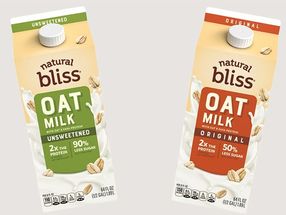Digital tools for more safety in the food chain
BfR developing software to estimate the transfer of undesirable substances in animal feeds to foods of animal origin
When feeds are contaminated with potentially health-damaging substances, such as per- and polyfluorinated alkyl substances (PFAS)/per- and polyfluorinated chemicals (PFC) from the environment, these substances can be transfered into foods such as meat, milk and eggs. Computer-based tools are currently being developed at the BfR with the aim of contributing to faster clarification of the health risks to humans potentially arising from such contaminants. "With the help of our first two digital tools, it is possible to model what levels of certain perfluorinated alkyl substances are to be expected in the foods milk, eggs and pork in the event of feed contamination," explained Professor Dr. Dr. Andreas Hensel, President of the Federal Institute for Risk Assessment (BfR) during the presentation of the tools at the "2nd Expert Forum on Per- and Po lyfluorinated Alkyl Substances/Per- and Polyfluorinated Chemicals" with German national and regional government authorities at the BfR. The new digital tools RITOPS and PERCOW are designed to help the monitoring authorities responsible for food and feed safety to respond quickly in the event of proven contamination of feeds with PFAS/PFC. They serve to facilitate the estimation of the health risks posed by foods produced from animals.
PERCOW (Perfluoralkyl Acids in Cow‘s Milk Calculator) is a modelling tool with which the toxicokinetic behaviour of substances such as perfluorooctanesulfonic acid (PFOS) in dairy cows can be simulated on a computer. The software is based on data acquired by the BfR in transfer experiments in which dairy cows were given feed containing PFAS under controlled conditions before measuring for how long the substances remain in the animal organism and in what quantities they transfer to milk over a certain period of time. From the acquired data, algorithms were developed which enable the estimation of the enrichment and depletion behaviour of the PFAS ingested with the feed in the cow and their transfer to the milk. The aim is to make it possible to estimate the concentrations of undesirable substances such as PFOS in the milk in the event that contaminated feed is fed and depending on factors such as such as the milk yield, lactation duration and exposure of the animals. These pa rameters can be set accordingly via a graphical user interface.
Using the RITOPS tool (Risk Tool for Estimation of PFAA Concentration in Swine), the toxicokinetic behaviour of seven PFAS in the organism of rearing pigs can be modelled on a computer. The algorithms, which allow the prediction of the enrichment and depletion behaviour of the undesirable substances ingested with the feed in the animals, are also based on data from experiments conducted at the BfR on the transfer of the substances from the feed to the tissue of porkers. Depending on parameters such as fattening duration and slaughter weight, as well as details of the exposure of the animals to these substances, RITOPS can be used to estimate the concentrations of undesirable substances in the various edible tissues, such as liver, fat and muscle meat.
RITOPS and PERCOW have been specially developed for use in the German Federal State monitoring of foods and feeds and are easy to use. No special knowledge of mathematical modelling is required to use them. RITOPS and PERCOW are now to be tested in practical applications.
Most read news
Other news from the department research and development

Get the food & beverage industry in your inbox
By submitting this form you agree that LUMITOS AG will send you the newsletter(s) selected above by email. Your data will not be passed on to third parties. Your data will be stored and processed in accordance with our data protection regulations. LUMITOS may contact you by email for the purpose of advertising or market and opinion surveys. You can revoke your consent at any time without giving reasons to LUMITOS AG, Ernst-Augustin-Str. 2, 12489 Berlin, Germany or by e-mail at revoke@lumitos.com with effect for the future. In addition, each email contains a link to unsubscribe from the corresponding newsletter.




























































